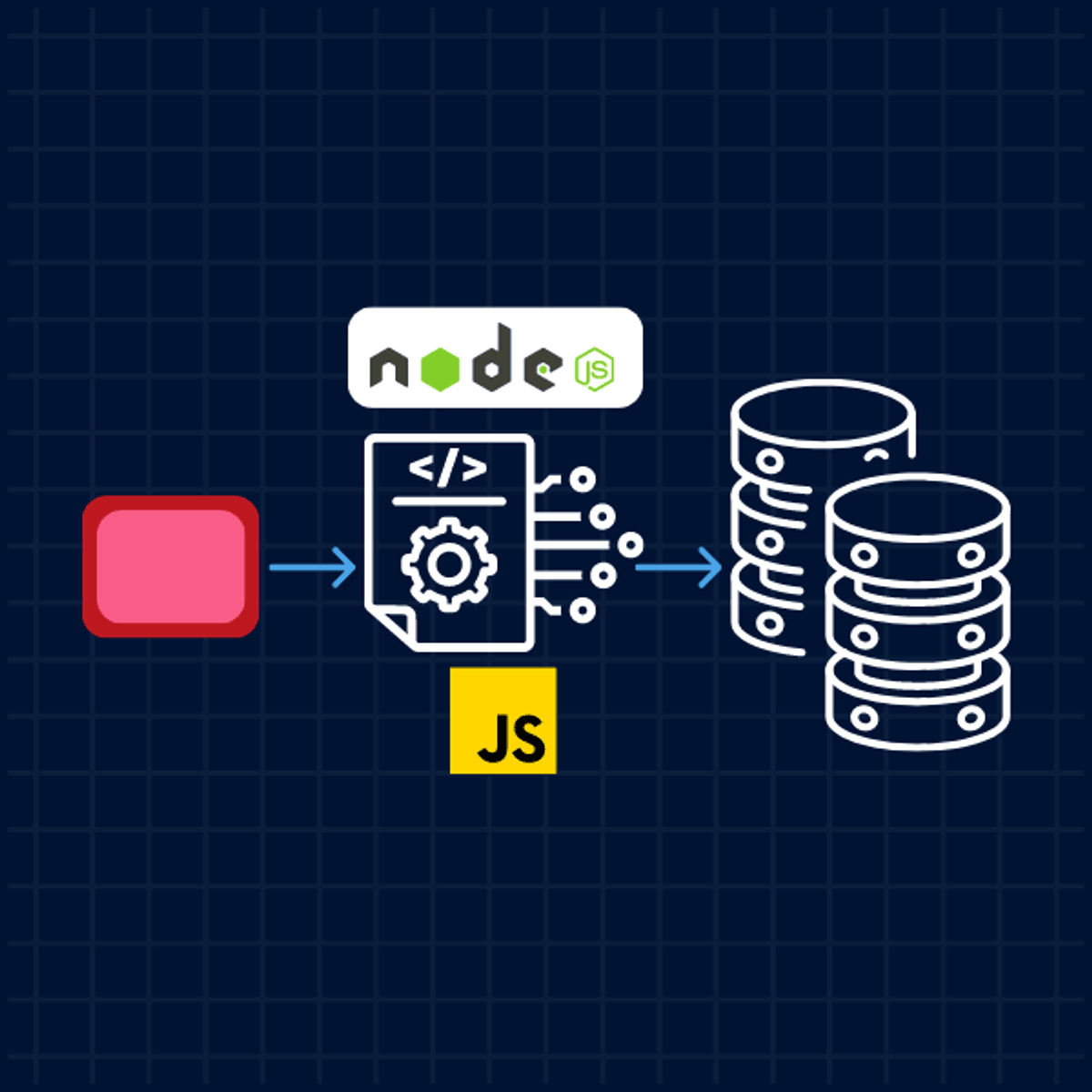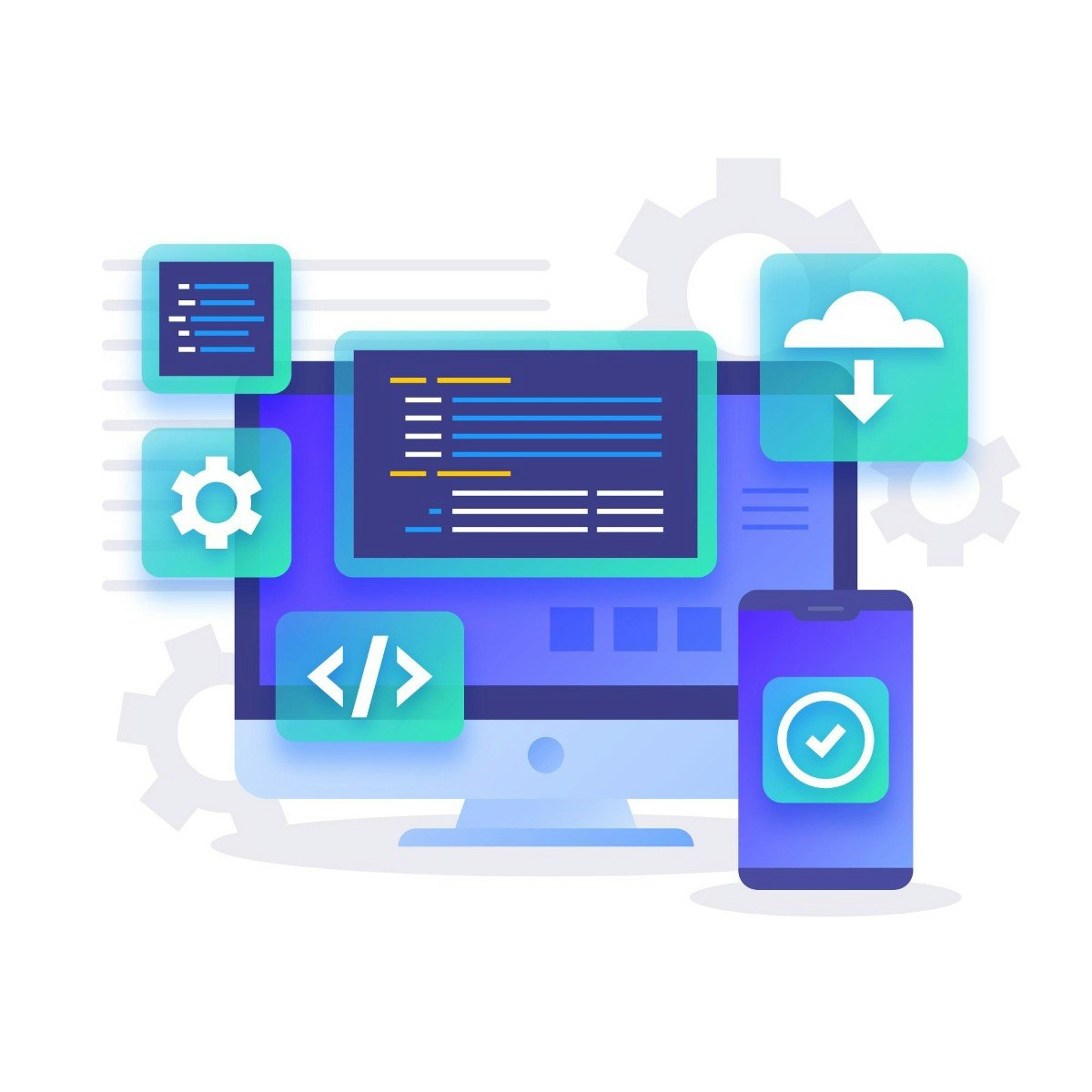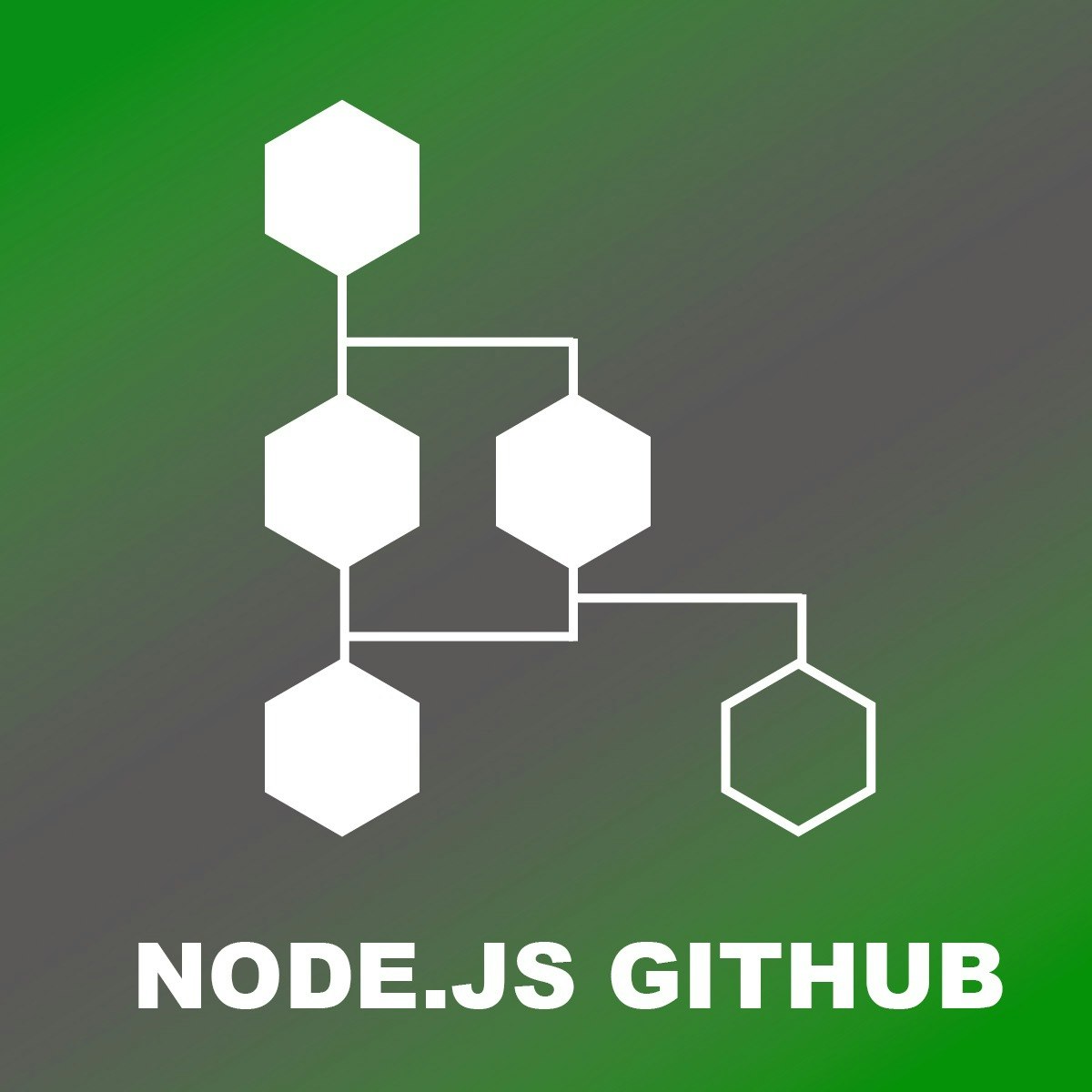Node.js Developer
Embarking on a Career as a Node.js Developer
A Node.js Developer is a software engineer who specializes in using Node.js, a JavaScript runtime environment, to build the server-side, or backend, of web applications. This means they are responsible for creating the logic, databases, and APIs that power applications, ensuring they run efficiently and can handle numerous users simultaneously. Node.js allows developers to use JavaScript, a language traditionally used for front-end (user interface) development, for backend tasks as well, which can streamline the development process.
Working as a Node.js Developer can be quite engaging. One exciting aspect is the ability to build highly scalable and real-time applications, such as live chat systems, online gaming platforms, and collaborative tools. The non-blocking, event-driven architecture of Node.js makes it particularly well-suited for these types of applications that need to handle many connections at once without slowing down. Furthermore, the vibrant and large open-source community surrounding Node.js means there's a wealth of libraries and tools available, constantly evolving and offering new ways to solve complex problems.
What is a Node.js Developer?
A Node.js Developer is a specialized type of software developer focused on building the server-side logic of web applications using the Node.js runtime environment. Node.js itself is an open-source, cross-platform environment that executes JavaScript code outside of a web browser, enabling developers to use JavaScript for both front-end and back-end development. This unification of language can lead to more efficient development workflows and team structures.
The primary responsibility of a Node.js Developer revolves around designing, developing, and maintaining the server-side components of applications. This includes managing databases, creating Application Programming Interfaces (APIs) that the front-end (client-side) of an application uses to communicate with the backend, and ensuring the application is performant, scalable, and secure. They often work with data, ensuring it's stored, retrieved, and processed efficiently.
Node.js developers are pivotal in building modern web applications, particularly those that require real-time updates, handle numerous concurrent connections, or are built using a microservices architecture. Their work is crucial for the functionality and overall user experience of many websites and online services people use daily. Companies like Netflix, Uber, and PayPal leverage Node.js in their technology stacks, highlighting its capability in large-scale, high-traffic environments.
Core Technologies and Tools
At the heart of a Node.js Developer's toolkit is, of course, JavaScript. A strong command of JavaScript is fundamental, as Node.js allows this traditionally client-side language to run on the server. This includes understanding core JavaScript concepts, modern ECMAScript features (ES6+), and how JavaScript's single-threaded, event-driven nature works within Node.js.
Another indispensable tool is npm (Node Package Manager). npm is the default package manager for Node.js and provides access to a vast ecosystem of open-source libraries and tools that can significantly speed up development. Developers use npm to install, share, and manage project dependencies. Familiarity with npm commands and the package.json file, which manages project metadata and dependencies, is essential.
For building web applications, Express.js is an extremely popular and widely adopted web application framework for Node.js. It provides a robust set of features for web and mobile applications, simplifying tasks like routing, middleware integration, and handling HTTP requests and responses. Many Node.js developers will spend a significant amount of time working with Express.js or similar frameworks like Koa.js or NestJS.
These courses offer a solid introduction to backend development with Node.js and its common frameworks, covering essential concepts for aspiring developers.
Role in Modern Web Development Ecosystems
Node.js Developers play a critical role in contemporary web development, largely due to Node.js's efficiency in handling I/O-bound operations and its ability to use JavaScript across the entire stack. This makes it a popular choice for building scalable network applications, including APIs for single-page applications (SPAs), real-time applications like chat or online gaming, and microservices.
In a typical full-stack development environment, Node.js Developers focus on the backend, creating the services that front-end developers (who might be using frameworks like React, Angular, or Vue.js) will consume. They ensure that data is processed efficiently, APIs are well-designed and responsive, and the overall server infrastructure is robust and scalable to meet user demand. The non-blocking, event-driven architecture of Node.js is particularly advantageous for applications that require handling many concurrent user connections with low latency.
Furthermore, Node.js is often a key component in microservices architectures. In this approach, large applications are broken down into smaller, independent services that communicate with each other. Node.js's lightweight nature and fast startup times make it well-suited for developing these individual microservices, allowing teams to develop, deploy, and scale parts of an application independently. This contributes to greater agility and maintainability in complex systems.
To understand the broader context of web development, exploring programming concepts and the role of a Full Stack Engineer can be beneficial.
Core Skills for Node.js Developers
To excel as a Node.js Developer, a combination of strong technical competencies and effective soft skills is necessary. These skills enable developers to build robust applications, collaborate with teams, and navigate the evolving technological landscape.
Proficiency in JavaScript/TypeScript
A deep understanding of JavaScript is the absolute cornerstone for any Node.js Developer. This goes beyond basic syntax; it includes mastering concepts like closures, prototypal inheritance, and modern ECMAScript (ES6+) features such as arrow functions, classes, promises, and async/await. Since Node.js allows JavaScript to run on the server, this proficiency directly translates to building efficient and effective backend systems.
Increasingly, TypeScript is becoming a valuable skill in Node.js development, especially in enterprise environments. TypeScript is a superset of JavaScript that adds static typing. This can help catch errors early in the development process, improve code maintainability, and make it easier to work on large-scale applications. Many companies are adopting TypeScript for their Node.js projects due to these benefits.
These resources can help solidify your JavaScript foundations and introduce you to TypeScript.
Understanding of Asynchronous Programming
Node.js heavily relies on an asynchronous, non-blocking I/O model. This is a key reason for its high performance and ability to handle many concurrent connections. Therefore, a Node.js Developer must have a solid grasp of asynchronous programming concepts. This includes understanding callbacks, Promises, and the async/await syntax, which are used to manage operations that don't complete immediately, like reading files, making network requests, or querying databases.
Effectively managing asynchronous operations is crucial for preventing "callback hell" (deeply nested callbacks that are hard to read and maintain) and for writing clean, efficient, and predictable code. Understanding the event loop, which is at the core of Node.js's concurrency model, is also vital. Developers need to know how the event loop processes tasks and how to write code that doesn't block it, ensuring the application remains responsive.
These learning materials delve into the intricacies of asynchronous JavaScript, a critical skill for Node.js development.
Experience with RESTful APIs and Databases
Most Node.js applications interact with data and expose functionality through APIs. Therefore, experience in designing and building RESTful APIs is a core skill. This involves understanding HTTP methods (GET, POST, PUT, DELETE), status codes, and how to structure API endpoints in a logical and consistent manner. Node.js developers often use frameworks like Express.js to facilitate API development.
Equally important is experience with databases. Node.js developers commonly work with both SQL databases (like PostgreSQL or MySQL) and NoSQL databases (like MongoDB). Skills required include database design, writing queries, understanding Object-Relational Mappers (ORMs) like Sequelize or Object-Document Mappers (ODMs) like Mongoose, and ensuring data integrity and security. The choice of database often depends on the specific needs of the application.
This course provides hands-on experience with building a backend that integrates with a MongoDB database.
In addition to these technical skills, problem-solving abilities are paramount. Node.js developers constantly face challenges, from debugging complex asynchronous code to optimizing application performance and designing scalable systems. Strong analytical and critical thinking skills are essential for identifying issues and implementing effective solutions.
Career Pathways for Node.js Developers
The journey of a Node.js Developer offers diverse opportunities for growth and specialization. As developers gain experience and deepen their expertise, they can progress through various roles, each with increasing responsibility and complexity. The path often begins with foundational roles and can lead to high-level architectural or leadership positions.
Entry-Level Roles
For individuals starting their careers in Node.js development, typical entry-level positions include Junior Developer or Software Intern. In these roles, new developers usually work under the guidance of more experienced team members. Their responsibilities often involve writing and testing code for specific modules or features, debugging existing code, and learning the team's development processes and codebase.
These initial roles are crucial for building a strong foundation in Node.js, understanding real-world application development, and gaining practical experience with tools and technologies used in a professional setting. It's a period of intense learning and skill development, focusing on core Node.js concepts, database interactions, and API development fundamentals. OpenCourser offers a variety of programming courses that can help build these foundational skills.
Consider these courses to get started and build foundational project experience.
Mid-Career Progression
After gaining a few years of experience, Node.js Developers can progress to mid-career roles such as Full-Stack Developer (if they also have front-end skills) or Backend Lead. In these positions, developers take on more responsibility, including designing and implementing more complex features, making architectural decisions for specific parts of an application, and potentially mentoring junior developers.
At this stage, developers are expected to have a strong understanding of Node.js, common frameworks like Express.js, database technologies, and best practices for software development, including testing and version control. They might also be involved in code reviews, contributing to system design discussions, and ensuring the quality and performance of the applications they build. Continuous learning is key, and exploring resources like the OpenCourser Learner's Guide can help professionals stay updated.
These courses are excellent for those looking to deepen their Node.js expertise and tackle more complex projects.
Reading these books can provide deeper insights into design patterns and advanced Node.js development.
Advanced Roles
With significant experience and a proven track record, Node.js Developers can advance to senior roles such as Software Architect, Technical Lead, or DevOps Engineer (if their skills align with operations and infrastructure). Software Architects are responsible for high-level design decisions, defining the overall structure and technology stack of applications, and ensuring scalability, reliability, and maintainability. Technical Leads guide development teams, provide technical direction, and are often still hands-on with coding complex parts of the system.
DevOps Engineers with Node.js skills focus on automating and streamlining the software development lifecycle, including continuous integration/continuous deployment (CI/CD) pipelines, infrastructure management (often using tools like Docker and Kubernetes), and ensuring the reliability and performance of production systems. These advanced roles require not only deep technical expertise in Node.js and related technologies but also strong leadership, communication, and strategic thinking skills. Keeping up with industry best practices, perhaps through resources on Cloud Computing, becomes crucial.
These books are valuable for those aspiring to or in advanced roles, covering software architecture and reliability.
Formal Education vs. Self-Taught Routes
Embarking on a career as a Node.js Developer can be approached through various educational pathways. Aspiring developers often weigh the benefits of formal education, such as a university degree or a coding bootcamp, against the flexibility and self-driven nature of self-learning. Each path has its merits and can lead to a successful career in Node.js development.
Computer Science Degrees and Coding Bootcamps
A traditional route into software development, including Node.js roles, is through a Bachelor's degree in Computer Science or a related field. University programs typically provide a strong theoretical foundation in computer science principles, data structures, algorithms, software engineering methodologies, and various programming languages. This broad knowledge can be highly beneficial for understanding complex systems and for long-term career growth. While a degree often takes several years to complete, it can offer a comprehensive understanding that extends beyond a single technology.
Coding bootcamps offer a more intensive and shorter-term alternative. These programs are typically focused on practical, job-ready skills and often have curricula designed around specific technologies like Node.js and the MEAN (MongoDB, Express.js, Angular, Node.js) or MERN (MongoDB, Express.js, React, Node.js) stacks. Bootcamps can be an effective way to quickly gain the necessary skills for an entry-level position, often in a matter of months. Many also offer career services to help graduates find employment. OpenCourser lists many courses, and you can browse categories like Computer Science to find relevant foundational learning.
This course offers a comprehensive look at the MEAN stack, which includes Node.js.
Self-Learning via Documentation and Open-Source Projects
The self-taught route is a viable and increasingly popular option for becoming a Node.js Developer, thanks to the abundance of online resources. Aspiring developers can leverage official documentation (like the Node.js and Express.js docs), numerous online courses, tutorials, blogs, and community forums to learn at their own pace. This path requires a high degree of self-discipline, motivation, and the ability to structure one's own learning.
Contributing to open-source projects is an excellent way for self-learners to gain practical experience, collaborate with other developers, and build a portfolio. Working on real-world codebases, understanding different coding styles, and receiving feedback from experienced contributors can significantly accelerate learning and demonstrate practical skills to potential employers. Building personal projects is also crucial for applying learned concepts and showcasing abilities.
Many high-quality online courses are available to guide self-learners. These often provide structured content, practical exercises, and projects.
Books remain a valuable resource for in-depth understanding of JavaScript and Node.js.
Certifications
While not always a strict requirement for Node.js roles, certifications can sometimes help demonstrate a certain level of knowledge and commitment, particularly for those who are self-taught or transitioning from a different field. There are various certifications available, some focusing on Node.js itself, while others are broader, such as cloud platform certifications (e.g., AWS Certified Developer, Microsoft Certified: Azure Developer Associate) which are increasingly relevant as applications are often deployed in the cloud.
Certifications related to specific technologies that Node.js developers often interact with, such as databases or containerization technologies like Docker and Kubernetes, can also be beneficial. However, it's generally agreed that a strong portfolio of projects and practical experience often carries more weight with employers than certifications alone. Certifications should be seen as a supplement to, rather than a replacement for, hands-on skills and a solid understanding of core concepts.
While OpenCourser doesn't directly offer certifications, many of the listed courses provide certificates of completion, which can be a good way to showcase learning achievements. You can find relevant courses by exploring categories such as IT & Networking and Cloud Computing.
Industry Trends Impacting Node.js Developers
The landscape of software development is constantly evolving, and Node.js developers must stay abreast of emerging trends to remain competitive and effective. Several key trends are currently shaping the way Node.js applications are built and deployed.
Adoption of Serverless Architectures
Serverless architecture, often associated with Function-as-a-Service (FaaS) platforms like AWS Lambda, Azure Functions, and Google Cloud Functions, is gaining significant traction. In a serverless model, developers write functions that are executed in response to events, and the cloud provider manages the underlying infrastructure. This can lead to reduced operational overhead and cost savings, as you only pay for the compute time you consume.
Node.js is a popular language for serverless functions due to its fast startup times and event-driven nature, which aligns well with the serverless paradigm. Node.js developers are increasingly expected to have some familiarity with serverless concepts and platforms, as more companies adopt this model for parts of, or even entire, applications. According to some reports, serverless adoption is a growing trend in cloud computing.
Understanding serverless principles can be a valuable asset. Exploring resources on serverless architecture can provide a good starting point.
Rise of Microservices and Containerization
Microservices architecture, where applications are built as a collection of small, independent services, continues to be a dominant trend in software development. This approach promotes scalability, resilience, and allows teams to develop and deploy services independently. Node.js is well-suited for building microservices due to its lightweight nature, quick startup, and suitability for I/O-bound tasks.
Closely linked to microservices is the rise of containerization technologies, primarily Docker, and container orchestration platforms like Kubernetes. These tools simplify the deployment, scaling, and management of microservices. Node.js developers are often expected to have experience with Docker for packaging their applications and, increasingly, a basic understanding of Kubernetes for deploying and managing them in production environments. The global microservices architecture market is projected to see significant growth.
These courses can introduce you to containerization and related technologies.
Shift Toward TypeScript in Enterprise Environments
While JavaScript remains the core language for Node.js, TypeScript is seeing increasing adoption, particularly in larger enterprise settings. TypeScript, a superset of JavaScript, adds optional static typing, which can help catch errors during development, improve code readability and maintainability, and make refactoring safer. For large, complex applications with many developers, these benefits can be substantial.
Many companies are migrating their Node.js codebases to TypeScript or starting new projects with TypeScript from the outset. As a result, proficiency in TypeScript is becoming a highly valuable skill for Node.js developers looking to work in enterprise environments or on large-scale projects. Understanding how to leverage TypeScript's features effectively within a Node.js context is increasingly important.
This course provides a strong foundation in TypeScript, which is becoming increasingly relevant for Node.js developers.
These books offer comprehensive insights into JavaScript, TypeScript, and modern development practices.
Freelancing and Remote Work Opportunities
The nature of software development, particularly for a versatile technology like Node.js, lends itself well to flexible work arrangements. Freelancing and remote work are increasingly common options for Node.js developers, offering both opportunities and unique challenges. The global demand for skilled developers often transcends geographical boundaries, creating a vibrant international market for Node.js expertise.
Global Demand for Remote Node.js Developers
There is a significant global demand for Node.js developers, and many companies are open to hiring remote talent. This trend has been accelerated by the overall shift towards remote work in many industries. Businesses of all sizes, from startups to large enterprises, seek Node.js developers for building backend systems, APIs, real-time applications, and microservices. The ability to write efficient, scalable JavaScript on the server-side makes Node.js a valuable skill in the current tech landscape.
This global demand means that developers are not limited to job opportunities in their immediate geographic area. With the right skills and a good portfolio, Node.js developers can find projects and full-time remote positions with companies located anywhere in the world. This opens up a wider range of possibilities for career growth and exposure to different types of projects and industries. According to Arc.dev, the global average salary for a remote Node.js developer is around $72,606 USD per year.
For those interested in the broader software engineering field, exploring options for a Software Engineer can provide additional context.
Platforms for Freelancing
Several online platforms facilitate connections between freelance Node.js developers and clients seeking their services. Popular platforms like Upwork, Toptal, and Freelancer.com host a wide array of Node.js projects, ranging from small, short-term tasks to large, ongoing engagements. These platforms typically allow developers to create profiles, showcase their skills and experience, bid on projects, and manage contracts and payments.
To succeed as a freelancer on these platforms, it's important to build a strong profile, gather positive reviews, and effectively communicate your value proposition to potential clients. Competition can be stiff, so highlighting specialized skills, a strong portfolio of completed projects, and excellent communication are key differentiators. Building a network and potentially specializing in a niche within Node.js development (e.g., real-time applications, serverless development, specific industry solutions) can also help attract clients.
Building a portfolio is crucial. Courses that involve capstone projects can be very beneficial.
Managing Client Expectations and Contracts
Successful freelancing and remote work heavily depend on effectively managing client expectations and having clear contractual agreements. Clear communication from the outset is vital. This includes thoroughly understanding project requirements, defining the scope of work, setting realistic timelines, and agreeing on deliverables and payment terms. Misunderstandings about scope or deadlines can lead to friction and dissatisfaction for both the developer and the client.
Formal contracts are essential to protect both parties. These should outline the scope of work, payment schedule, intellectual property rights, confidentiality clauses, and dispute resolution mechanisms. For remote developers, especially those working with international clients, it's also important to consider time zone differences, communication protocols, and cultural nuances that might impact collaboration. Proactive communication, regular updates on progress, and promptly addressing any issues that arise are key to maintaining good client relationships.
Developing strong project management and communication skills are as important as technical skills for freelancers. Consider resources that focus on Professional Development to enhance these areas.
Ethical Challenges in Backend Development
Backend developers, including those specializing in Node.js, hold significant responsibility for the systems they build. Their work often involves handling sensitive data and ensuring the security and reliability of applications. Consequently, they face various ethical challenges that require careful consideration and proactive measures.
Data Privacy and GDPR Compliance
One of the most critical ethical considerations for backend developers is data privacy. Applications often collect, store, and process user data, which can range from personal identifiers to financial information and behavioral patterns. Node.js developers must ensure that systems are designed and implemented in a way that protects this data from unauthorized access, use, or disclosure. This includes implementing robust security measures like encryption, access controls, and secure data storage practices.
Regulations like the General Data Protection Regulation (GDPR) in Europe, the California Consumer Privacy Act (CCPA), and similar laws in other jurisdictions impose strict requirements on how personal data is handled. Node.js developers need to be aware of these regulations and ensure their applications comply. This might involve implementing features for data subject rights (e.g., the right to access or delete data), conducting data protection impact assessments, and ensuring data processing activities have a lawful basis. According to the official GDPR website, organizations must implement appropriate technical and organizational measures to ensure data protection by design and by default.
Understanding data privacy principles is crucial. While not specific to Node.js, courses on Cybersecurity often cover these topics broadly.
Security Vulnerabilities
Backend systems are frequent targets for malicious attacks. Node.js developers have an ethical responsibility to build secure applications and protect them from common vulnerabilities. These can include issues like SQL injection (or NoSQL injection, depending on the database), Cross-Site Scripting (XSS) – though more directly a front-end concern, backend APIs can contribute, insecure authentication and authorization mechanisms, and vulnerabilities in third-party dependencies.
Adopting secure coding practices, regularly updating dependencies to patch known vulnerabilities, performing security testing (e.g., penetration testing, vulnerability scanning), and implementing security headers are all essential. Staying informed about emerging security threats and best practices is an ongoing responsibility. The Open Web Application Security Project (OWASP) provides valuable resources, such as the OWASP Top Ten, which lists the most critical web application security risks.
Developing secure applications is a core competency. Consider resources that cover secure coding practices.
Sustainable Coding Practices
While not always framed as an ethical issue, the environmental impact of software is gaining attention. Backend systems, especially those at scale, consume significant energy resources. Sustainable coding practices aim to create software that is more energy-efficient and has a smaller carbon footprint. This can involve optimizing code for performance to reduce CPU cycles, designing efficient algorithms, choosing energy-efficient infrastructure, and minimizing unnecessary data storage and processing.
For Node.js developers, this might mean writing non-blocking, efficient asynchronous code, optimizing database queries, and being mindful of resource usage in cloud environments. While the direct impact of an individual developer's code might seem small, collective efforts towards more sustainable software development can contribute to broader environmental goals. This area is still evolving, but it represents a growing awareness of the wider impact of technology.
Optimizing performance often aligns with sustainable practices. Learning about efficient coding can be beneficial.
Global Job Market for Node.js Developers
The demand for Node.js developers is robust globally, driven by the technology's versatility and efficiency in building modern web applications. Understanding the job market dynamics, including high-demand regions, salary expectations, and cultural aspects of working in distributed teams, is crucial for anyone considering or advancing a career in Node.js development.
High-Demand Regions
Node.js developers are sought after worldwide, but certain regions exhibit particularly high demand. North America, especially the United States, consistently shows a strong need for Node.js talent, with numerous opportunities in tech hubs and increasingly in remote roles. European countries, particularly in Western and Northern Europe (e.g., Germany, UK, Netherlands, Nordic countries), also have a vibrant job market for Node.js developers. Many companies in these regions are building scalable web applications and microservices, for which Node.js is a popular choice.
Asia is another significant market, with countries like India having a large pool of tech talent and a growing number of companies adopting Node.js. Australia also shows healthy demand. The rise of remote work has further globalized the job market, allowing developers from various regions to access opportunities in these high-demand areas. Statistics indicate a significant number of websites and companies worldwide utilize Node.js.
Exploring job trends can be helpful. While OpenCourser focuses on learning, understanding market demand complements career planning. For an overview of developer salaries, resources like Robert Half's Salary Guide can offer general tech industry benchmarks, though specifics for Node.js will vary.
Salary Benchmarks and Equity Structures
Salaries for Node.js developers vary significantly based on factors such as location, experience level, company size, and the complexity of the role. Generally, salaries are higher in regions with a higher cost of living and greater demand, such as North America and Western Europe. For instance, the average salary for a Node.js developer in the US can be around $128,000 annually, with ranges from approximately $108,500 to $146,000. In contrast, average salaries in other regions like Eastern Europe or parts of Latin America and Asia might be lower, though still competitive locally.
Entry-level positions will naturally command lower salaries than senior or architect roles, which require extensive experience and expertise. In addition to base salary, compensation packages, especially in startups and tech companies, may include equity (stock options or restricted stock units - RSUs). Equity can be a significant component of overall compensation, offering the potential for substantial financial reward if the company performs well, but it also comes with inherent risks. Understanding the terms of any equity offered is crucial.
These books touch upon the professional aspects of software development, which can indirectly relate to career and salary progression.
Cultural Challenges in Distributed Teams
With the increase in remote work and globally distributed teams, Node.js developers often collaborate with colleagues from diverse cultural backgrounds. While this presents opportunities for rich learning and varied perspectives, it can also introduce cultural challenges. Communication styles, work ethics, approaches to hierarchy, and holiday schedules can differ significantly across cultures.
Effective communication, empathy, and a willingness to understand and adapt to different cultural norms are essential for successful collaboration in distributed teams. Companies often invest in tools and practices to foster better cross-cultural communication and team cohesion. For developers, being mindful of these differences, practicing active listening, and being clear and explicit in their communications can help mitigate potential misunderstandings and build stronger working relationships. Building these communication skills is an important aspect of professional development.
FAQs for Aspiring Node.js Developers
Embarking on a new career path or specializing in a technology like Node.js naturally comes with many questions. Here are some frequently asked questions that aspiring Node.js developers often have, along with concise, informative answers.
Is Node.js suitable for large-scale applications?
Yes, Node.js is well-suited for many types of large-scale applications. Its non-blocking, event-driven architecture makes it highly efficient at handling numerous concurrent connections, which is a common requirement for large applications. Companies like Netflix, PayPal, Uber, and Walmart use Node.js in their production systems, demonstrating its capability to handle significant traffic and complex operations.
Node.js particularly shines in applications that are I/O intensive, such as data streaming services, real-time applications (e.g., chat, online gaming), and API gateways for microservices architectures. When combined with strategies like clustering (to utilize multiple CPU cores), horizontal scaling (adding more servers), and potentially a microservices approach, Node.js can form the backbone of very large and scalable systems. However, for CPU-intensive tasks, other technologies might sometimes be more appropriate, or Node.js might be used in conjunction with other services better suited for heavy computation.
These courses provide insights into building and scaling Node.js applications.
How does one transition from front-end to Node.js roles?
Transitioning from a front-end role to a Node.js backend role is a common and often smooth path, primarily because both utilize JavaScript. This shared language provides a significant head start. The first step is to deepen your JavaScript knowledge, ensuring a strong grasp of concepts beyond DOM manipulation, such as asynchronous programming (callbacks, Promises, async/await), modules, and error handling, which are critical for backend development.
Next, focus on learning Node.js specific APIs and concepts, such as the event loop, file system interaction, and streams. Gaining proficiency with a backend framework like Express.js is essential for building APIs and web applications. You'll also need to learn about databases (both SQL and NoSQL like MongoDB), how to interact with them from Node.js, and principles of API design (e.g., RESTful services). Building personal backend projects or contributing to open-source Node.js projects is crucial for practical experience and creating a portfolio. Online courses and resources like those on OpenCourser can provide structured learning paths for this transition.
These courses are specifically helpful for those looking to get into backend development with Node.js.
What are typical interview questions and coding challenges?
Node.js interviews typically cover a range of topics to assess a candidate's understanding and practical skills. Common areas include: JavaScript Fundamentals: Questions about closures, `this` keyword, prototypal inheritance, ES6+ features, asynchronous programming (callbacks, Promises, async/await), and the event loop. Node.js Core Concepts: Understanding of Node.js architecture (single-threaded, event-driven, non-blocking I/O), modules (CommonJS vs. ES modules), streams, error handling, child processes, and built-in modules like `fs`, `http`, `path`. Frameworks (usually Express.js): Middleware, routing, request/response handling, error handling in Express, and building RESTful APIs. Databases: Experience with SQL and/or NoSQL databases (MongoDB is common), ORMs/ODMs (like Mongoose), writing queries, and database design concepts. Problem Solving & Coding Challenges: Candidates are often asked to solve coding problems, which might involve algorithms, data structures, or practical Node.js tasks like building a simple API endpoint, processing data, or handling asynchronous operations. System Design: For more senior roles, questions about designing scalable and resilient systems, microservices, caching strategies, and database choices might be asked.
Preparing for these questions involves not just memorizing answers but truly understanding the concepts and being able to apply them. Practicing coding problems on platforms like LeetCode or HackerRank, and building projects, is highly recommended. Many online resources compile common Node.js interview questions.
This book is a classic for general programming interview preparation.
How can one future-proof skills in a changing ecosystem?
The technology landscape is always evolving, and Node.js is no exception. To future-proof your skills, continuous learning is paramount. Actively follow industry blogs, news, and influential developers in the Node.js community. Regularly explore new features in Node.js itself and in popular frameworks and libraries. Experiment with emerging technologies and paradigms, such as serverless computing, GraphQL, WebAssembly, and the increasing role of AI/ML in application development.
Deepen your understanding of fundamental computer science principles, software architecture, and design patterns, as these are more timeless than specific framework knowledge. [ecutyd] Gaining proficiency in TypeScript is also a strong move, given its growing adoption in enterprise Node.js development. Additionally, developing skills in related areas like DevOps (containerization with Docker, orchestration with Kubernetes), cloud platforms (AWS, Azure, GCP), and database management will make you a more versatile and valuable developer. Don't be afraid to step outside your comfort zone and learn new things. Participation in open-source projects can also expose you to new tools and best practices.
Consider these advanced topics and frameworks that are gaining traction.
Should one balance specialization vs. full-stack versatility?
The decision between specializing deeply in Node.js backend development or aiming for full-stack versatility (covering both frontend and backend) depends on individual career goals, interests, and market demands. Both paths offer viable and rewarding careers.
Specializing in Node.js allows for deep expertise in server-side technologies, performance optimization, database management, and building complex backend systems. This can lead to roles like Backend Architect or specialist positions in areas like real-time systems or microservices. Deep specialists are often highly valued for their specific knowledge.
Full-stack versatility, on the other hand, enables developers to work on all aspects of an application, from the user interface to the server-side logic and database. This can be appealing for those who enjoy variety and seeing the bigger picture. Full-stack developers are often in high demand, particularly in startups or smaller companies where individuals may need to wear multiple hats. Many Node.js developers naturally gain some front-end exposure, and vice-versa, due to JavaScript being common to both. Ultimately, a "T-shaped" skillset—deep expertise in one area (like Node.js backend) combined with broader knowledge across other areas (like frontend or DevOps)—is often considered ideal.
If aiming for full-stack, courses covering front-end technologies are essential.
What is the impact of AI tools on Node.js development workflows?
AI tools are increasingly impacting software development workflows, including for Node.js developers. AI-powered coding assistants (like GitHub Copilot or Amazon CodeWhisperer) can help automate repetitive coding tasks, suggest code completions, generate boilerplate code, and even help with debugging. This can potentially increase developer productivity and allow them to focus on more complex problem-solving and design tasks.
AI is also being used for tasks like automated testing, code review assistance, performance optimization suggestions, and even generating documentation. For Node.js developers, this means AI can assist in writing more efficient asynchronous code, optimizing database queries, or identifying potential security vulnerabilities. However, it's crucial to remember that AI tools are assistants, not replacements for developer expertise. Developers still need strong fundamental knowledge to guide these tools, validate their output, and understand the underlying implications of the code generated. The ability to effectively leverage AI tools while maintaining critical thinking and problem-solving skills will likely become an important asset for Node.js developers.
The field of AI and its application in development is rapidly evolving. Staying updated through resources focusing on Artificial Intelligence can be beneficial.
Helpful Resources
To further aid your journey into Node.js development, here are some valuable resources:
- Official Node.js Documentation: The primary source for understanding Node.js features and APIs. You can find it at nodejs.org.
- npm Documentation: Essential for learning about package management with npm. Available at docs.npmjs.com.
- Express.js Official Website: Contains documentation and guides for the popular Express.js framework. Visit expressjs.com.
- MDN Web Docs (Mozilla Developer Network): An excellent resource for all things JavaScript, HTML, and CSS, which are foundational for web development. Explore it at developer.mozilla.org.
- Stack Overflow: A large community Q&A website where you can find answers to specific Node.js programming questions.
- OpenCourser: OpenCourser itself is a fantastic platform for discovering online courses and books related to Node.js and countless other tech skills. Utilize its search functionality to find targeted learning materials. You might find the Learner's Guide particularly helpful for structuring your learning.
Becoming a Node.js Developer is a challenging yet rewarding endeavor. The field offers ample opportunities for growth, creativity, and impact in the ever-evolving world of technology. With dedication, continuous learning, and by leveraging the wealth of available resources, aspiring developers can build a successful and fulfilling career in Node.js development.



















